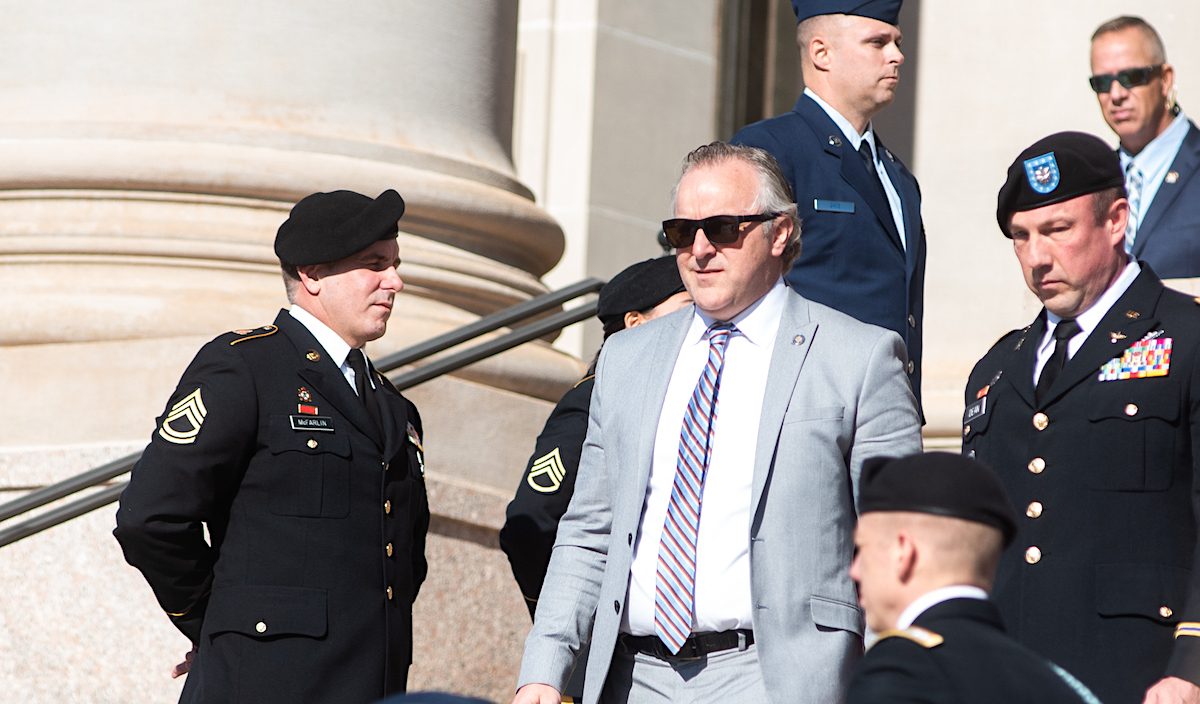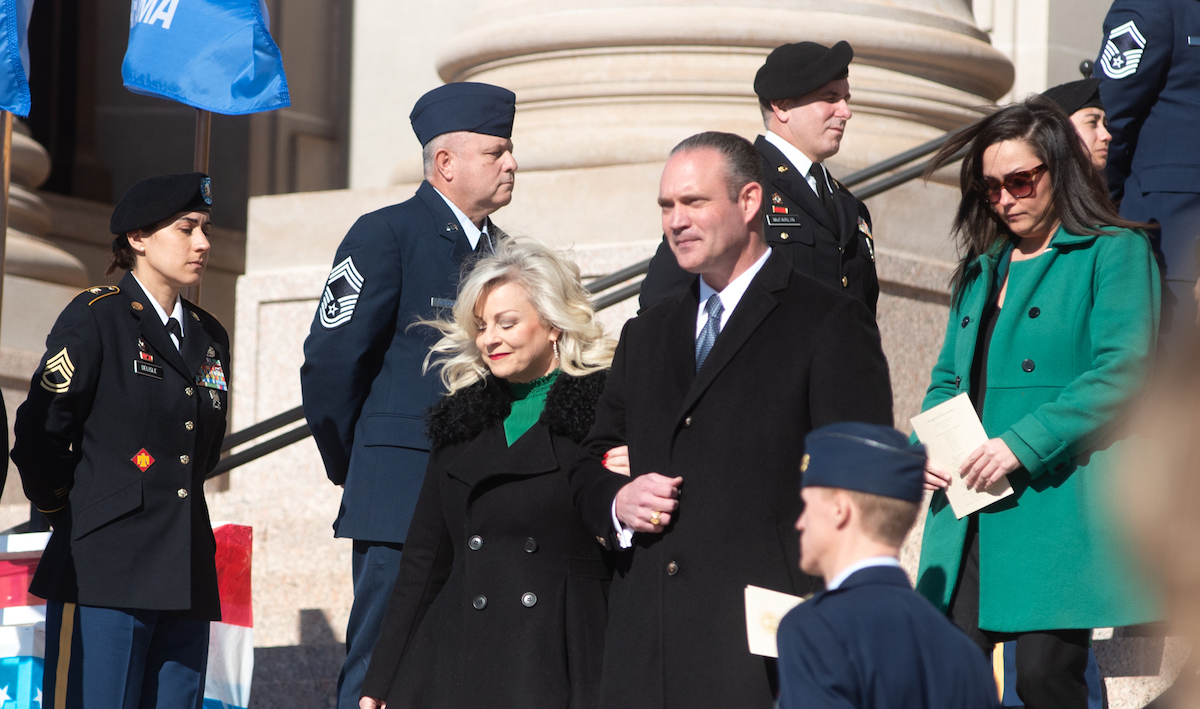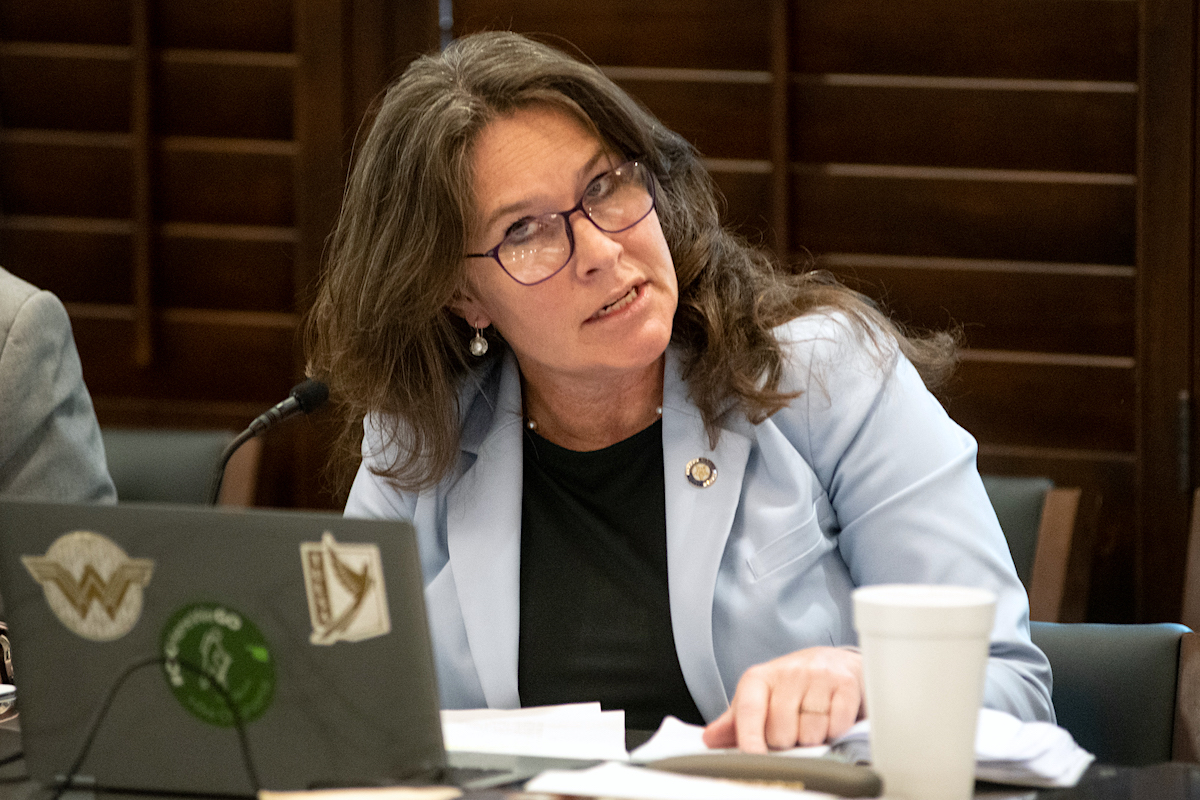
Almost a year ago, Senate President Pro Tempore Greg Treat (R-OKC) pushed the controversial Oklahoma Empowerment Act to the State Senate floor, where it divided lawmakers and eventually fell three votes shy of advancing. The bill, which had support from Gov. Kevin Stitt, would have created a school voucher system for the state, allowing parents to use public money for private school options for their kids.
Now, as a coalition of national and local organizations works with new Superintendent of Public Instruction Ryan Walters in closed-door school choice lobbying meetings, Treat and other members of the Oklahoma Legislature have their own thoughts about whether another private school voucher bill might advance in the 2023 regular session, which starts Feb. 6.
Walters has argued that voters’ strong support for him and Gov. Kevin Stitt in the November election represents a “mandate” for expanding school choice, and his assessment of new momentum for a voucher bill — much like the topic itself — has education-focused lawmakers divided.
“It is an incredibly popular topic to discuss, ‘How do we really empower families through school choice and through options, and what does that look like?'” Walters said in a recent interview. “I mean, these are conversations that are being had daily across the state.”
Treat, who agrees with Walters’ assessment regarding a voter “mandate” for more school choices, said the superintendent’s election shows that “people are not satisfied with how things currently are in education.”
Treat said he still believes the best solution for education in Oklahoma is expanding school choice, and he said he is open to exploring a different bill from the one that failed last year.
“I’m not somebody that runs at the same spot in the wall and just backs up and runs at it again,” Treat said. “I’ll move over a couple feet and see if I can get a breakthrough.”

Despite Treat’s amusing metaphor, it remains unclear what “moving over a couple of feet” could mean for a 2023 voucher bill or what studs might lurk behind the legislative drywall. The House is likely to wait and see what type of school choice measure the State Senate can pass this year, and a slew of new members following the 2022 election cycle makes early vote counts even less certain than last year.
A controversial topic in Oklahoma and across the country, expansion of school choice via vouchers is a proposed system in which the state could set aside money in vouchers or education savings accounts (ESAs) for parents to use on homeschooling or private school options for their kids. Proponents have said that parents need as many choices as possible for their kids’ education, something Gov. Kevin Stitt emphasized during his inaugural speech Monday.
“We have a responsibility to do whatever it takes to give our children — not just the next generation, but today’s children right here in front of us — access to top-10 education choices,” Stitt said.
Critics of school choice proposals say they defund public education, particularly in rural areas. Opposition primarily from Democrats and rural Republican senators defeated Treat’s bill last year.
Should Republican leaders again find themselves unable to strike a school choice compromise to appease their caucuses, another option could put Walters’ “mandate” theory to a direct test. Lawmakers could pass a resolution proposing a ballot initiative, which would all Oklahoma voters to settle the voucher question themselves.
But even then, it is unclear what form such a voucher proposal might take. The most ardent proponents of school choice have argued for universal implementation, meaning parents anywhere in the state could use state money for alternative education options. A potential compromise on the issue has been floated to limit voucher access to Oklahoma’s more urban areas, where there are more education options for students. That proposal faces its own obstacles, however.
‘A different approach’

In the House, Speaker Charles McCall (R-Atoka) opposed Treat’s bill last year, but he has signaled that he may have softened his stance regarding another attempt this session.
“I expect there to be a different approach on the ESA [bill] filed this year,” McCall said. “Not all the conservative groups were behind last year’s [bill]. I mean, they weren’t in support.”
This year, McCall said he plans to work with all of the members of his House GOP caucus on education policies.
“I think there will be an urban perspective. We have members in the urban sectors, the suburban sectors and very heavily in the rural areas, as well,” McCall said. “And our caucus will work to find wins for everybody in policy that works throughout the state.”
Rep. Toni Hasenbeck (R-Elgin), a former teacher, declined to indicate support or opposition for a school choice bill, but she did disagree with Walters’ assessment of the 2022 election results.
“Well, I certainly don’t think the election results were a mandate for ESAs or vouchers,” Hasenbeck said.
Hasenbeck framed the issue as one in which rural legislators must “fight” to be heard.
RELATED
As questions swirl, Ryan Walters focused on school choice, ideology by Bennett Brinkman
“Rural educators are going to have to really work hard to make sure that we are convincing urban Oklahomans that what is good for rural Oklahoma is also good for urban Oklahoma,” Hasenbeck said. “I don’t know that urban folks really understand the dynamic of the school being the largest employer in a small town and how important it is to assist the community and how important it is to the local economy.”
Rep. Dick Lowe (R-Amber) also has a different interpretation of the election than Walters.
“You can make statistics and numbers say anything you want to say,” Lowe said. “(There) may be a group that says it’s a mandate. What we’re going to say is, ‘Let’s do this thing right.'”
Lowe, the son of two educators and a former educator himself, is starting his second session as the vice chairman of the House Appropriations and Budget Common Education Subcommittee. He also served on the general House Common Education Committee, although this year’s assignments had not been posted prior to publication of this article.
Lowe predicted that teacher pay and education savings accounts would be the two big conversations in education for 2023.
“Like it, hate it, otherwise, we’re going to hear about ESAs — it’s just going to be an issue,” Lowe said. “I don’t know what we’re going to do here in the House. My guess is we’re probably not hearing it again until we can get time to really get this thing worked out.”
At their September meeting, State Board of Education members voted to request a $5,000 teacher pay raise from the Legislature in an effort to keep educators’ salaries competitive with surrounding states. While the requested pay raise faces a long legislative road to become reality, lawmakers are expected to have discussions about hiking teacher pay in addition to school choice this session.
Rep. Tammy West (R-OKC), another House Common Education Committee member in 2022, said she expects “everybody” to weigh in on the school choice conversation.
“So much of our body is rural,” West said. “I’m sure there will be meetings where there’s going to be some very deep, honest, frank discussion.”
Other lawmakers declined to say if they support a potential voucher bill, but some did have other thoughts on Walters as he takes over at the State Department of Education.
“It’s time to move on from campaign mode into policy mode,” said Rep. Ronny Johns (R-Ada).
Johns, another former educator who sat on the House Common Education Committee and the appropriations subcommittee last session, said “parents already have choices” when it comes to school options, and he argued that attracting and maintaining teachers has to be a “priority” in the 2023 legislative session.
The last time the Oklahoma Legislature took action to expand school choice was in 2021. After a public push in 2020 that ultimately floundered during the pandemic-shortened session, lawmakers expanded the Equal Opportunity Education Scholarship Program in 2021 by barely mentioning the issue publicly all session and bundling it with the budget bills that are largely negotiated in private.
The Equal Opportunity Education Scholarship Program incentivizes education donations by allowing those who donate to public or private schools to claim a tax credit. Programs such as the Oklahoma Opportunity Scholarship Fund manage the donations and use them to award scholarships to low-income families to send their kids to the school of their choice. The budget-related bill raised the state’s annual tax credit cap for the program.
‘A rural school killer’

Before any new voucher bills have even been filed in the Legislature, some lawmakers are already taking a stand against them.
“I have told all of my constituents that I am not in favor of the voucher system,” said newly elected Rep. Clay Staires (R-Skiatook), who has called himself “America’s millionaire schoolteacher.”
Rep. Melissa Provenzano (D-Tulsa), a former teacher and principal who describes herself as “not pulling any punches” when it comes to education, is also firmly against education savings accounts.
“[Vouchers are] a rural school killer,” said Provenzano, who also served on the House Common Education Committee last year. “You saw [Walters and Stitt saying] during the election cycle, ‘Oh, no, we’re not going to do anything to harm rural schools.’ I don’t see how you accomplish that. Because the pot of money is the pot of money. If there is less in the general fund for education, that is less for everyone, and public schools have had to make every single dollar stretch for years now.”
Appearing to hint at Walters’ election, Provenzano said she wants attention paid to bills in the upcoming session that focus on teacher retention.
“I’m hopeful for bills that will encourage teachers to stay in the profession,” Provenzano said. “Because many across the state are very deeply concerned about the outcomes of the elections that we just had.”
Provenzano also called Walters’ campaign rhetoric divisive.
“Quality teachers isn’t our issue,” Provenzano said. “Getting in the way of them and keeping them from doing the job that they were hired to do is our problem. And you heard a lot of buzzwords about being woke — about being CRT — which is ridiculous, to be very frank, because teachers are teaching the fundamentals. They need our help, and we need to bulldoze all the extraneous stuff out of the way so they can do their jobs. And we need to ask them what we can do to support that.”
(Correction: This article was updated at 9:45 a.m. Wednesday, Jan. 11, to make a more correct reference to a bill from 2022.)





















